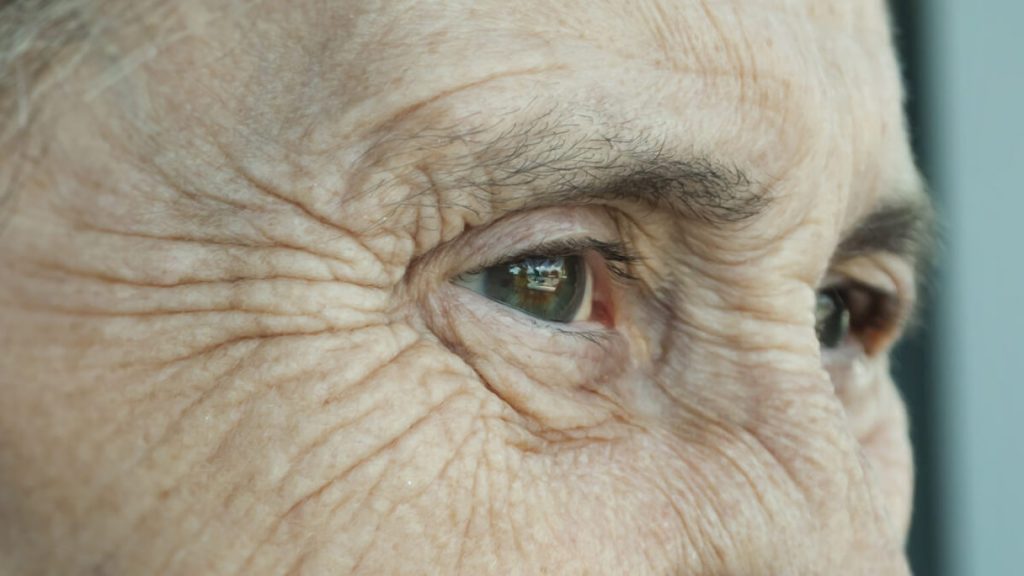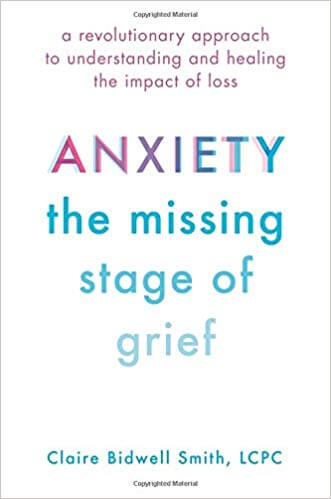
photo by Adobe Stock
By Claire Bidwell Smith | Next Avenue
(This article is excerpted from Anxiety: The Missing Stage of Grief by Claire Bidwell Smith.)
What is anxiety? Where does it come from, and how can you gain control over it? And why is it so frequently spurred by the loss of a loved one? These are often the first questions I address when meeting with a new client, because understanding anxiety is the first step in learning how to overcome it. But understanding how it is tied to the loss of a loved one is even more important.
I have been a grief counselor for more than a decade. I’ve worked in both hospice and private practice. I’ve held the handsof many people in their final moments of life, including my own father. And I’ve worked with countless people who have struggled to cope in the wake of grief after losing someone they love.
Yet while I’ve written and spoken and worked with death in so many capacities, it is this one issue that I have encountered more than any other: anxiety following a loss.
It is understandable that death makes us anxious. We experience anxiety after a loss because losing someone we love thrusts us into a vulnerable place. Loss changes our day-to-day lives. It forces us to confront our mortality. And facing these fundamental human truths about life’s unpredictability can cause fear and anxiety to surface in profound and unexpected ways.
The first thing to know is that anxiety is more common than you may even realize. Recent studies show that 18 percent of the population of the United States, roughly 40 million people, have suffered from anxiety in the past year. Not only that, but it also seems to be on the uptick. Anxiety is leading far ahead of depression as the most common health issue on college campuses. And even higher than the national average, data from the National Institute of Mental Health shows that 38 percent of teenage girls and 26 percent of teenage boys have an anxiety disorder.
The good news is that anxiety is also highly treatable.
The Basics of Anxiety
So what exactly is anxiety? At its core, anxiety is fear of something, real or imagined. Specifically, anxiety comes from fear-based thoughts about things that are not necessarily occurring in the present moment or that may never occur. Anxiety is intrinsically linked to our physiology. You may have a physical pain or sensation that then generates a fear-based thought or memory. Or you may have a fear-based thought that generates a physical sensation.
 Anxiety is a feeling of dread or foreboding. Anxiety can be as simple as a general sense of uneasiness, a feeling that all is not right, or it can be as specific as worrying that you have cancer or that the plane you are flying in will crash. Anxiety comes from the Latin word anxius, which means a state of agitation and distress. This distress is often felt on a deep level, in both the mind and the body. It is the sense of danger but not always a specific one that you can identify.
Anxiety is a feeling of dread or foreboding. Anxiety can be as simple as a general sense of uneasiness, a feeling that all is not right, or it can be as specific as worrying that you have cancer or that the plane you are flying in will crash. Anxiety comes from the Latin word anxius, which means a state of agitation and distress. This distress is often felt on a deep level, in both the mind and the body. It is the sense of danger but not always a specific one that you can identify.
Anxiety is also a practical and useful emotion. We actually need anxiety in certain situations. Anxiety helps us prepare for an exam or think about all the things we might need to pack for a trip. Anxiety helps us stay alert and present to our well-being.
But when anxiety goes beyond these practicalities and we begin to worry all the time, it can become problematic. Worry is the mind’s expression of anxiety. When we find ourselves worrying incessantly about things beyond our control, that is when we need to take steps to calm the mind.
After the death of a loved one, many of the fears that run through your mind can be perceived as more of a threat than before the loss. You have witnessed someone die, and now that inevitability is more real than ever before in your life. So when you have a fear-based thought about that person’s death, or about your own mortality, or a worry about losing someone else, your body and mind are reacting stronger than before you experienced loss.
The intense amount of emotions that come with grief can also heighten your sense of fear and danger. Most people have never felt such strong emotions as they do when they lose someone they love. It can be very frightening to find yourself overwhelmed with sadness or anger, and this can lead to even more anxiety, even years after the loss.
Anxiety can also perpetuate itself. I can’t tell you how many clients confess that what they are most anxious about is experiencing more anxiety. Once they have had one panic attack or one truly anxious spell, they often find themselves worrying that they will have another. They worry that they will be at an event, at work, or on a plane and that they will suddenly get hit with a bout of anxiety and be unable to cope with it. Thus, the fear-based thoughts become simply about having more of them. It’s a tricky cycle, one that can last far beyond the actual loss, but it is one that can be brought under control.
What Does Anxiety Look Like?
Anxiety comes in many shapes and sizes. While it can look different for different people, it also has a lot of common symptoms, many I’m sure you’ll recognize. Above all, the most complicated aspect of anxiety is that it can manifest in very real physical symptoms. These symptoms, ranging from heart palpitations to nausea, can deceive you into thinking there is something physically wrong with you, when really there is a deeper, underlying, psychological issue that must be addressed in order to alleviate the physical symptoms.
Symptoms of Anxiety and Panic Attacks
- Irregular heartbeat
- Dizziness and lightheadedness
- Shortness of breath
- Choking sensations and nausea
- Shaking and sweating
- Fatigue and weakness
- Chest pain and heartburn
- Muscle spasms
- Hot flashes or sudden chills
- Tingling sensations in your extremities
- A fear that you’re going crazy
- A fear that you might die or be seriously ill
At its most basic, anxiety is the sense of fear. These fears can be real or imagined. Your fears can be about something in the past, the present, or the future.
In grief we experience fear for many reasons. We can feel afraid of how the future has changed now that an important person in our lives is gone. We can feel afraid of more loss, worrying that we might lose more loved ones. We can worry about our health, concerned that we may get sick or die soon, too. Some people also have residual feelings of trauma as a result of witnessing or hearing details of the death itself.
While many people experience anxiety for a variety of reasons — divorce, moving, illness, a genetic predisposition — the kind of anxiety that is brought on as result of losing someone close to you is its own breed. While grief anxiety maintains many of the same characteristics as generalized anxiety, there is an underlying situational cause. So when we can allow ourselves to grieve and truly explore the impact of the loss, we are better able to ease and manage the anxiety that accompanies it.
![]() This article originally appeared on Next Avenue
This article originally appeared on Next Avenue
© Twin Cities Public Television - 2018. All rights reserved.
Read Next



